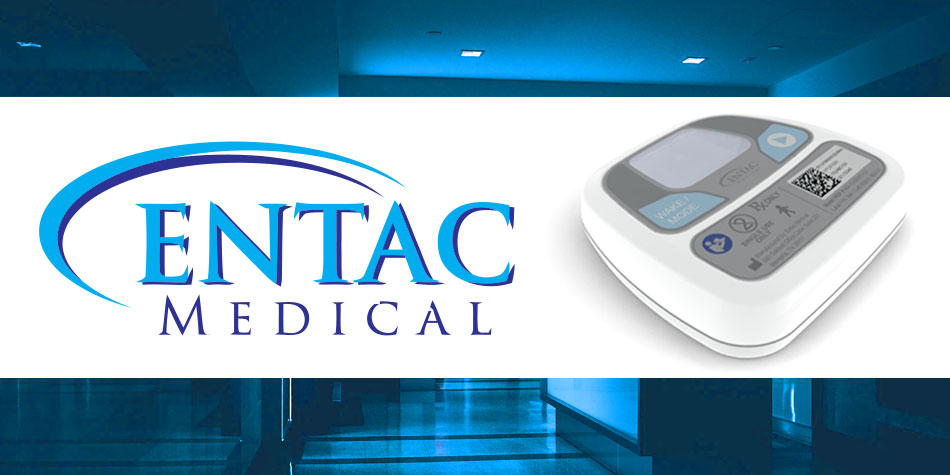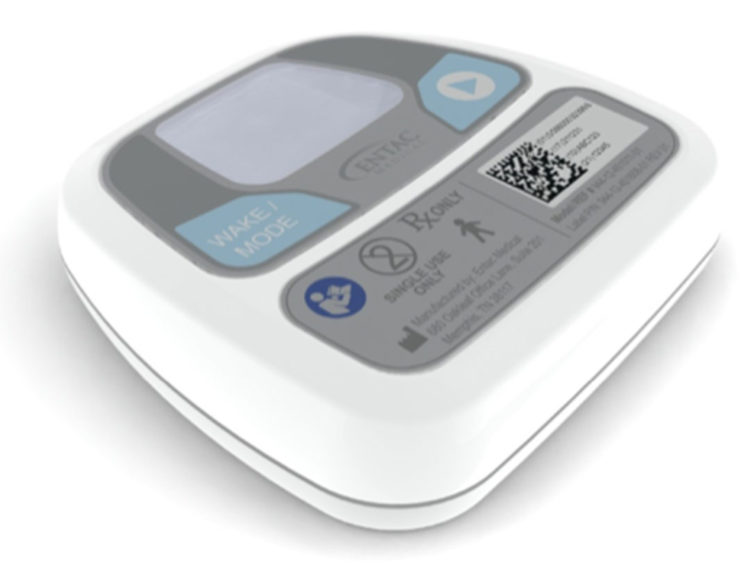
Gastrointestinal impairment (GII) is acute paralysis of the GI tract beginning two to seven days after major abdominal surgery. Around 25 percent of patients develop GII due to postoperative ileus (POI), a small bowel blockage or another postoperative complication. GII puts patients at risk and leads to readmission rates exceeding 20 percent following surgery.
One University of Tennessee Research Foundation startup seeks to predict GII with greater accuracy using audio predictive analytics and artificial intelligence.
We’re going to tell a doctor today if his patient is going to be sick several days from now,” said Chief Executive Officer and Founder of Entac Medical Buddy Lyons. “That’s unheard of in medicine.”

Founded in 2012, Entac Medical develops noninvasive devices for predictive and diagnostic medicine based on a novel, patented platform technology. The technology’s inventor Dr. John Cromwell, a former researcher at the University of Tennessee Health Science Center (UTHSC), serves as Entac Medical’s Chief Technical Officer and Medical Officer.
Entac Medical’s product PrevisEA is a small, self-contained, noninvasive device that attaches to a patient’s abdomen after surgery. It uses proprietary algorithms to detect a highly specific, clinically proven biomarker correlated with the development of GII. When used in the critical few hours following surgery, PrevisEA can predict future development of GII.
One significant problem with GII is that surgeons do not know which patients will develop it after surgery. Therefore, they must decide when to refeed and safely discharge patients following their operations. PrevisEA eliminates this guessing game, allowing surgeons to customize postoperative care, thereby lessening the emotional and physical impacts on patients and the financial strain on hospitals and the healthcare system by avoiding costly readmissions.

To me, it’s extremely significant,” Lyons said. “The technology benefits the patient, the hospital, and the payer by simply being able to look into the future and tell the physician what they can do.”
Lyons first got to know UTRF and UTRF Vice President Richard Magid while working on a prior company created from UT technology. When Dr. Cromwell created PrevisEA, Magid knew who to call to help commercialize the technology.
I’d collaborated with Buddy Lyons before, and I knew he was looking for another business opportunity. When I saw the initial technology disclosure, I called him and pitched him on what would eventually turn into PrevisEA,” Magid said. “Entac Medical is doing incredible work. We look forward to the team’s exciting next steps in 2021 and beyond.”

Lyons described his partnership with UTRF as “terrific.” No matter what challenges the company encounters, UTRF understands the complex journey entrepreneurs must take.
They have been a terrific partner in understanding the entrepreneurial environment and challenges of young companies trying to get technologies to market and to commercialize technology that was born at their university,” Lyons said. “I couldn’t be more thrilled to have them as a partner and shareholder of Entac.”
Looking ahead, 2021 will be a big year for Entac Medical. To date, the startup has raised around $4.5 million and recently extended its Series B Capital Raise. In March, Entac Medical filed a 510(k) for PrevisEA and expects to commercialize sometime in Q4. Additionally, the startup is about to begin one of the largest trials in the GI patient population at eight academic medical centers around the country with around 300 patients participating.
We firmly believe there are other opportunities out there for us to solve other issues using audio from patients’ bodies to be able to predict and offer early detection,” Lyons said. “We are very appreciative of the university for allowing us to license the technology to move it forward.”